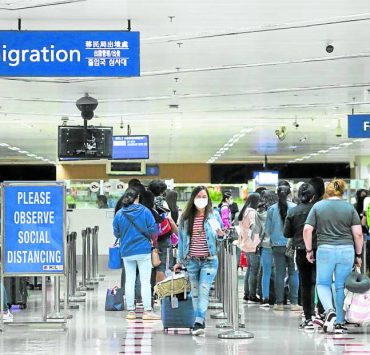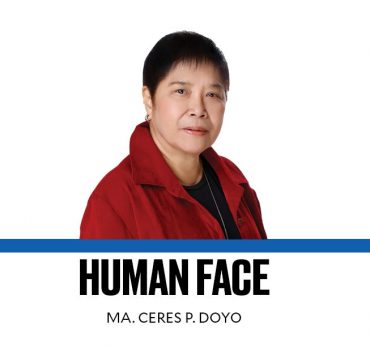Supporting—not just rewarding—success

When Hidilyn Diaz-Naranjo won her historic gold medal in the Tokyo Olympics, she was pledged the following cash prizes: P10 million under the Republic Act No. 10699 or National Athletes and Coaches Benefits and Incentives Act; P10 million from Manny Pangilinan; P10 million from San Miguel Corp.’s Ramon Ang; P5 million from Dennis Uy; P3 million from Office of the President; among many other incentives totaling over P50 million.
But when she hadn’t won the gold yet, Diaz’s life was that of struggle, makeshift barbells, and at one point, vilification—even after already winning silver in Rio de Janeiro. “Hirap na hirap ako (I’m really experiencing hardship), I need financial support,” she posted in Instagram back in 2019; that same year, she was baselessly accused by the Duterte administration as being part of a “destabilization plot.” After winning, of course, the same people who demonized or refused to support her were quick to embrace her with open arms.
We do not know yet the final financial tally for Carlos Yulo, who returned to Philippines as a hero after his historic double triumph in Paris. But he is bound to get P20 million under RA 10699, P6 million from the House of Representatives, a P32 million three-bedroom unit, 150,000 annual Mabuhay Miles, and much more. (He received P20 million from President Marcos as well—ed.) Yulo received significant support for years before his Olympic triumphs, but it took also took a gold—in the FIG Artistic Gymnastics World Championships in Stuttgart in 2019 for him to gain significant sponsorship.
For those who haven’t reached the podium, however, the struggle continues. From Paris, golfer Dottie Ardina took to social media to lament that “we even needed to buy t-shirts.” For years, EJ Obiena has been very vocal about his travails, from his team members not being paid to his poles not being transported; like Yulo, it was victory itself that catapulted him to national recognition and some level of support. Will his strong finish boost this support and give him another, stronger, shot in Los Angeles?
To be fair, the government—including the Philippine Olympic Committee and the Philippine Sports Commission—has been increasing support at least in some sports; Yulo for instance received P3 million from the PSC back in 2020. Private sponsors have also been stepping up to support promising athletes, including the Manny V. Pangilinan Sports Foundation and the laudable Cynthia Carrion, who supported Yulo from the beginning.
For many athletes, however, the irony is that victory remains the only sure path to getting support. And facing the prospect of an unsupported and uncertain career, some switch flags and citizenships altogether. As the now-American chess grandmaster Wesley So painfully said of our country: “I did not have the connections needed to succeed in that culture.”
In the aftermath of the Paris 2024, all of the above seem obvious, and I have high hopes that our strong showing will translate to longer-term investments in sports, not just on promising players and their coaches and whole teams but also the necessary infrastructure (including more swimming pools and running tracks) that can also allow nonathletes to embrace more sports and physical activity in their everyday lives.
Beyond sports, however, I want to make a broader point: Our country is good at rewarding people for their success—but not so much at supporting them so they can succeed.
In music and the arts, for instance, those who make it to the global stage would likewise garner various rewards and recognitions—from Lea Salonga to Dolly de Leon—but support for cinema, music, literature, and other fields remain insufficient. We pine for a Nobel Prize in Literature but is there enough support for our writers? We long for an Oscar but is there enough support for our film industry?
Our scientists, too, face similar hurdles. Our universities reward those who succeed in publishing journal articles, and many awards await prolific scholars, but getting the support to do research and get published is much more complicated. Again, in fairness, there have been efforts on the part of the Department of Science and Technology and the universities themselves to change this state, but availing of them requires bureaucratic gymnastics.
We want to reward people for reaching 100, but our life expectancy is less than 70, pointing to a lack of supportive environment for longevity—from access to health care to quality of life.
Of course, there is nothing wrong in rewarding success; it is surely a powerful incentive for people to work harder; it can inspire others to also raise the bar in their own lives.
What’s wrong is when we only support the already-successful, we award and reward people for winning awards, making the path to success even more difficult. This is not only unfair but inequitable for it also favors those who already have the means to succeed in the first place.
And so alongside rewarding success, we should also enable it by supporting our athletes, our scholars, our artists and musicians, our young people regardless of their chosen fields—from the very beginning.
Gideon Lasco, physician, medical anthropologist, and columnist, writes about health, medicine, culture, society, and in the Philippines.


















